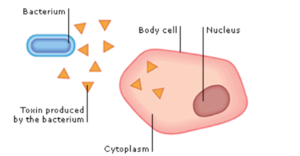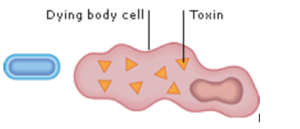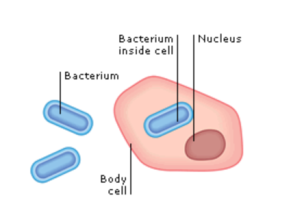
Neuro Degenative Conditions and Chronic Infections
|
|
||
| Amyotrophic Lateral Sclerosis (ALS) |
Mycoplasma fermentans (and other species), Borrelia b., Chlamydia pneumoniae, HHV6 virus. |
||
| Multiple Sclerosis (MS) | Chlamydia pneumonia, Borrelia b., HSV1 and other Herpes Viruses | ||
| Alzheimer’s Disease (AD) |
Chlamydia pneumonia, Mycoplasma species, Borrelia spp, HVV6 and other Herpes Viruses |
||
| Parkinson’s Disease (PD) | Helicobacter pylori, coronavirus, Mycoplasma Species, Borrelia spp. | ||
| Autism Spectrum Disorder (ASD) |
Mycoplasma fermentans (and other species), Borrelia b, Borrelia g., Borrelia a., Rickettsia, Sutterella,Chlamydia pneumoniae, HHV6 virus. |
||
| NeuroBorreliosis & CFS |
Mycoplasma pneumonia (and other species), Borrelia b., Borrelia g., Borrelia a, Chlamydia pneumonia, Bastonella |
Toxins and Chronic Infections of the Central nervous System
Some bacteria cause disease by producing poisonous chemicals known as toxins. These chemicals may destroy specific body cells or enter cells and alter their chemical processes. Some toxins are released from bacteria when they die and may cause shock and fever.
The toxin is released into the body by the bacterium. The toxin attaches to a body cell and is absorbed into the fluid cytoplasm.
The toxin disrupts normal chemical reactions inside the cell, so that the cell is unable to function and dies
Bacterial invasion of a cell : Intercellular & Chronic Infections
A few bacteria damage tissues in the human body not by secreting toxins but by directly invading the cells. Once inside body cells, the bacteria reproduce and eventually burst out, rupturing the cell membrane.
Different bacteria are specifically attracted to certain body cells. Bacteria enter the cell through the membrane and use the cell nutrients.
The bacteria multiply in the cell. In the case of Chronic Infections the bacteria lives in the cell without killing it but it hijacks the metabolism of the infected cell like the Krebs cycle and the purines productions.
borrelia spp. tend to migrate to the Central Nervous System cells, it then disrupts the metabolism of cells like neurons, astrocystes, microglia and Schwann Cells causing mini septsis causing neuro degenrative symptoms.





